On This Day: England Created History by Winning Their Maiden T20 World Cup
The England Men's cricket team is now known for its dominance when it comes to the ICC events, holding two T20 World Cups and one ODI World Cup. But a few cricket fans know the time when England broke its World Cup jinx to win the first title.
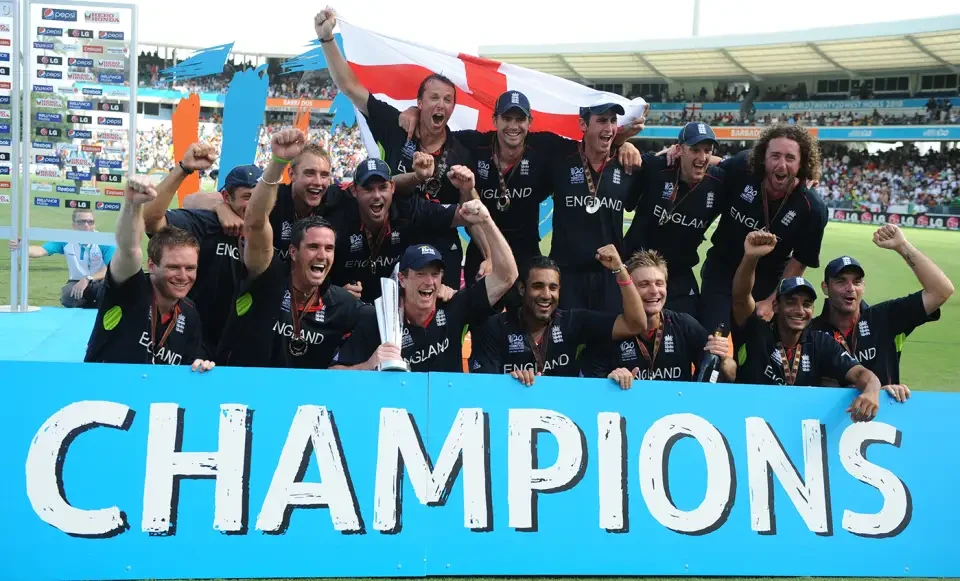
Earlier, the team was able to reach the finals on multiple occasions, but on this day in 2010, they were finally able to win the first ICC title. During the ICC T20 World Cup 2010, their dominance reached a new level, as they again faced Australia, their arch rivals, in the finals. The result came out to be different this time, allowing them to clinch the maiden title. In this article, we take a look back at the final clash, when England defeated Australia.
16 May 2010: England vs Australia, Final
With England defeating Sri Lanka and Australia defeating Pakistan in their respective semi-final matches, the stage was all set for the El Clasico final in the T20 World Cup. The match was being played at the Kensington Oval in Barbados, a pitch known for its favourable chasing conditions. Paul Collingwood and Michael Clarke came out for the toss, which was won by the England captain. Collingwood took no time to make his decision, as England fielded first in the game.
The decision to start off the match fielding first came in their favour, as the Australian batters didn’t get time to settle. Ryan Sidebottom opened the wickets column in the first over, taking the wicket of Shane Watson. Following that, David Warner also got run out by Michael Lumb in the second over, putting both openers in the dugout. But this was not over, as Sidebottom took the wicket of Brad Haddin the very next over, putting Australia 3 down for the score of 8 runs.

Michael Clarke and David Hussey took the centre stage to establish a partnership for the team. However, they were not able to maintain the run rate at a good pace. Following some change in plans by the England team, Graeme Swann took the wicket of Michael Clarke, who got out at the score of 27 runs off 27 balls with 2 fours. Australia was now in a challenging spot when Cameron White decided to join David Hussey for the fifth wicket stand.
By 10.3 overs, Australia had finally reached the score of 50, as both the batsmen now decided to boost the scoring rate. In this attempt, Cameron White lost his wicket to Luke Wright, getting caught by Stuart Broad. His heroics came out to be a much-needed innings for the Australian team, as White got out at the score of 30 runs off 19 balls with 4 fours and one six. David Hussey played his game well, as he eventually reached a half-century in 49 balls.
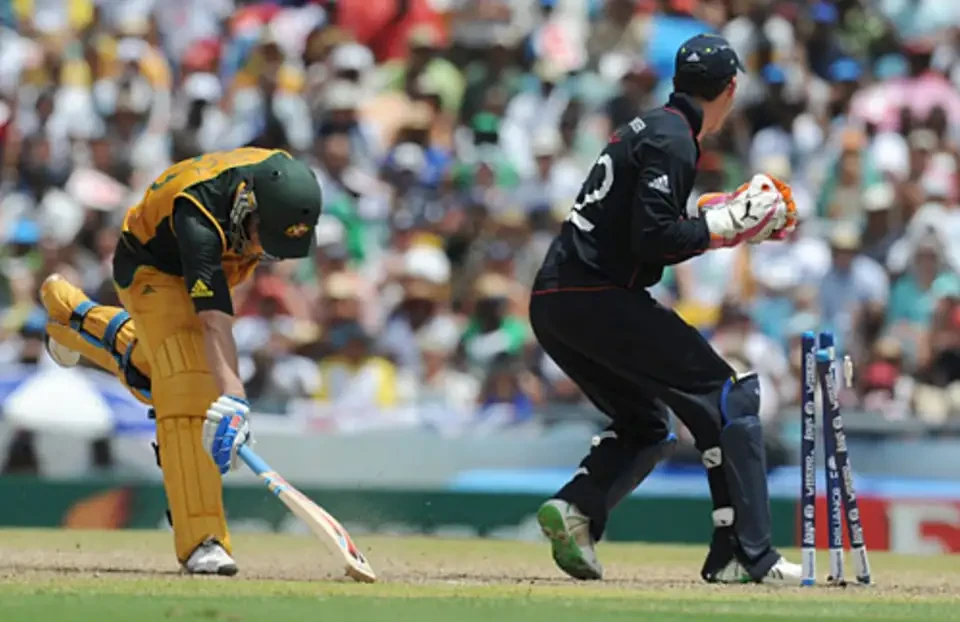
On the other end, Michael Clarke took the responsibility of smashing boundaries for the team, as Hussey also rotated strikes perfectly. In the last over, David Hussey was run out by Luke Wright, as Stuart Broad maintained his line and length. David scored 59 runs off 54 deliveries, as Michael Hussey smashed 17 runs off 10 balls, with the Australian side ending at 147 runs for the loss of 6 wickets. Ryan Sidebottom was the leading wicket-taker for England, with 2 wickets and conceding 26 runs in four overs.
Coming out to chase the target, England had sent Michael Lumb and Craig Kieswetter to the crease. But things didn’t go as planned when Shaun Tait took the wicket of Lumb in the second over. Following that, the Australian side thought of a chance to get back in the match. However, Kevin Pietersen, along with Craig Kieswetter, had different plans, which worked in England’s favour pretty well.
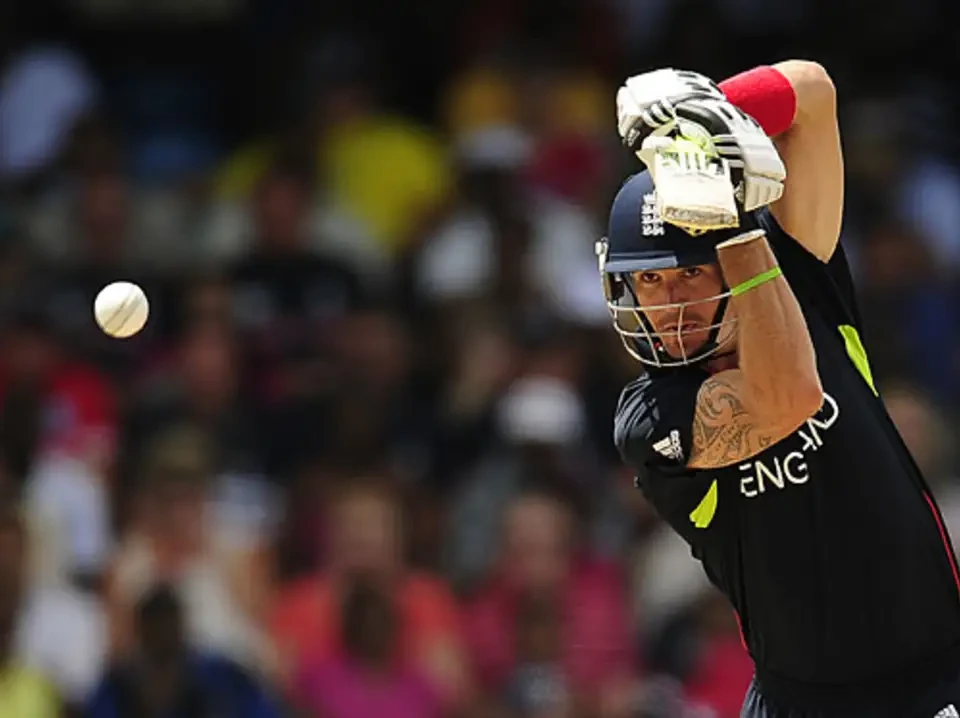
Dominating the Aussies, Kevin Pietersen and Craig Kieswetter had an impressive 111-run stand for the second wicket, which played a crucial role in their win. Just when they thought off to finish the game without losing further wickets, Pietersen lost his wicket to Steven Smith, with England now 2 down at the score of 118. But he had already played an impressive knock of 47 runs in 31 balls, with 4 fours and one six, making it easier for the team to win.
Craig Kieswetter smashed a half-century in 40 balls and looked set to finish the match. But in the 15th over, he lost his wicket to Mitchell Johnson, being bowled out after scoring 63 runs off 49 balls with 7 fours and 2 sixes. Coming next, Paul Collingwood and Eoin Morgan scored the remaining runs, allowing England to win the match and end their title drought.
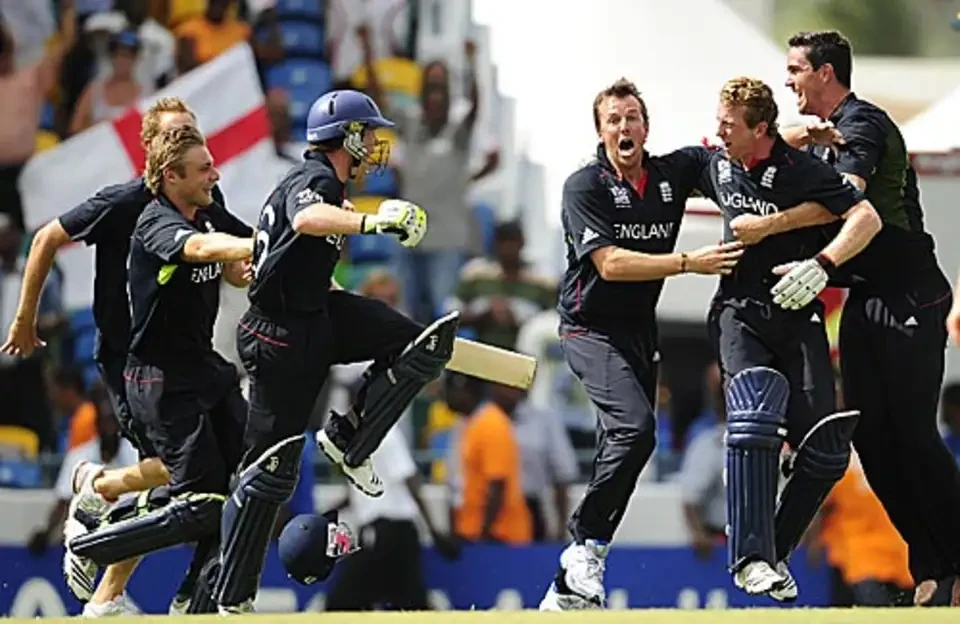
As a result, England chased down the score in 17 overs with 7 wickets remaining. Collingwood accelerated well, scoring 12 runs off 5 balls, and Morgan (15 off 13) assisted him to the win. Despite their efforts with the ball, the Australian team fell short of lifting the T20 World Cup. Craig Kieswetter, for his magnificent 63 runs, was awarded the Player of the Match in the finals.
England’s Dominance in T20 World Cup 2010
The Champions of the T20 World Cup 2010, England, didn’t have a good start to the season, as they were not able to perform well in the Group stages. Playing their first group stage match against West Indies, they lost by 8 wickets and one ball remaining, as the match was interrupted by the weather conditions.
Following that, the team had hopes of securing a massive win over Ireland in their last group stage match. But it was also interrupted due to rain, which resulted in both teams receiving a point each. Thus, without even winning a single game in the group stages, England qualified for the Super Eight stages, having a better net run rate.
| Date | Match | Venue | Opponent | Winner | Margin | Player of the Match |
|---|---|---|---|---|---|---|
| 3 May | Group Stage | Providence Stadium | West Indies | West Indies | 8 Wickets and 1 ball | Darren Sammy |
| 4 May | Group Stage | Providence Stadium | Ireland | NA | NA | NA |
| 6 May | Super Eight | Kensington Oval | Pakistan | England | 6 Wickets and 3 balls | Kevin Pietersen |
| 8 May | Super Eight | Kensington Oval | South Africa | England | 39 Runs | Kevin Pietersen |
| 10 May | Super Eight | Kensington Oval | New Zealand | England | 3 Wickets and 5 balls | Tim Bresnan |
| 13 May | Semi-Final | Beausejour Stadium | Sri Lanka | England | 7 Wickets and 24 balls | Stuart Broad |
| 16 May | Final | Kensington Oval | Australia | England | 7 Wickets and 18 balls | Craig Kieswetter |
In the Super Eight, the team won all of its matches, finishing at the top of their group. In the first match against the defending champions, Pakistan, England won by 6 wickets, as Pietersen scored 73 runs to help them chase down the score. The second game for them was against South Africa, where the bowlers took the lead.
England posted a total of 168 runs, to which the Proteas got all out at the score of just 129, allowing England to get its second win, where again Kevin Pietersen showcased his heroics, with 53 runs off 33 balls. Graeme Swann and Ryan Sidebottom took 3 wickets each, playing a crucial role in the team’s win in their second Super Eight match.
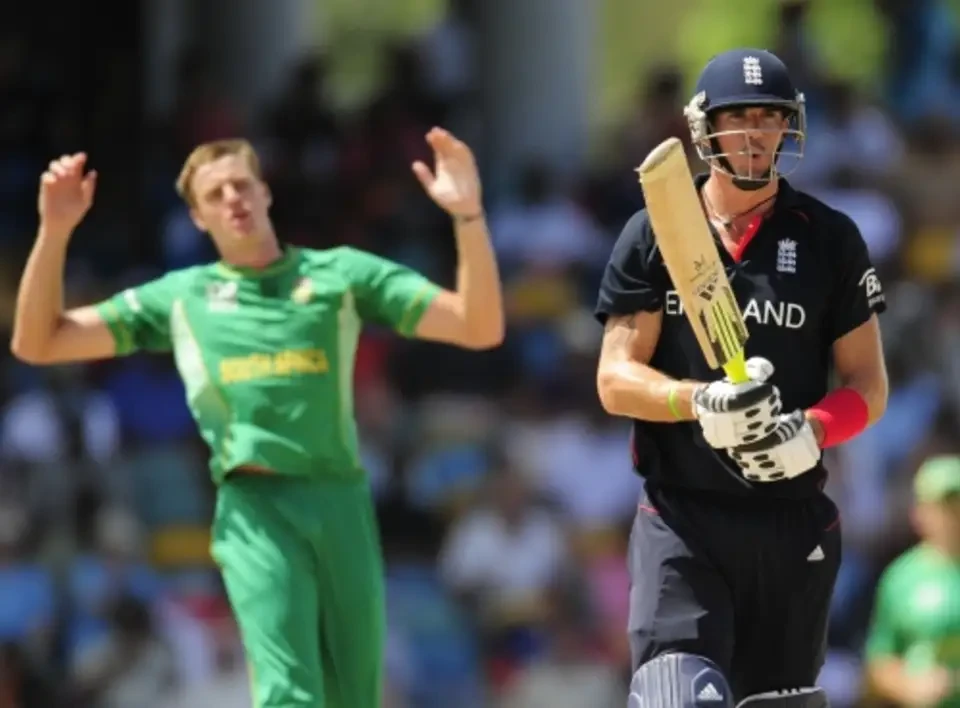
Their last Super Eight game was intense, as the team went against New Zealand. Chasing the score of just 150, England lost quick wickets but still managed to reach the target with 3 wickets and 5 balls remaining. Thus, they easily finished at the top of the Super Eight group table, which helped them to reach the semi-finals.
In the semi-finals, the team went against Sri Lanka, and chasing the meagre total of 129, England won by 7 wickets and 24 balls remaining to reach the finals. Later, they went against Australia in the final clash, where they were finally able to break the World Cup jinx and get their first ICC T20 World Cup.
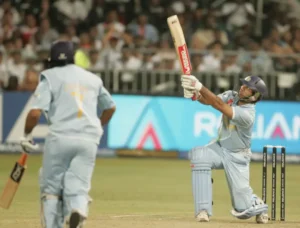
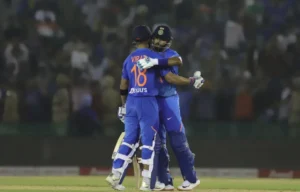

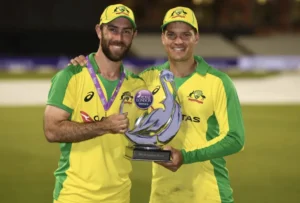
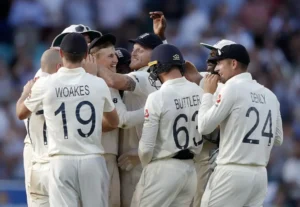
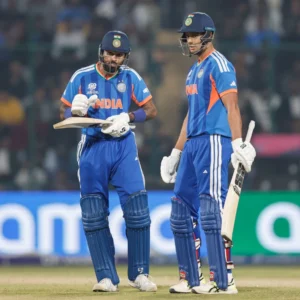
Comments